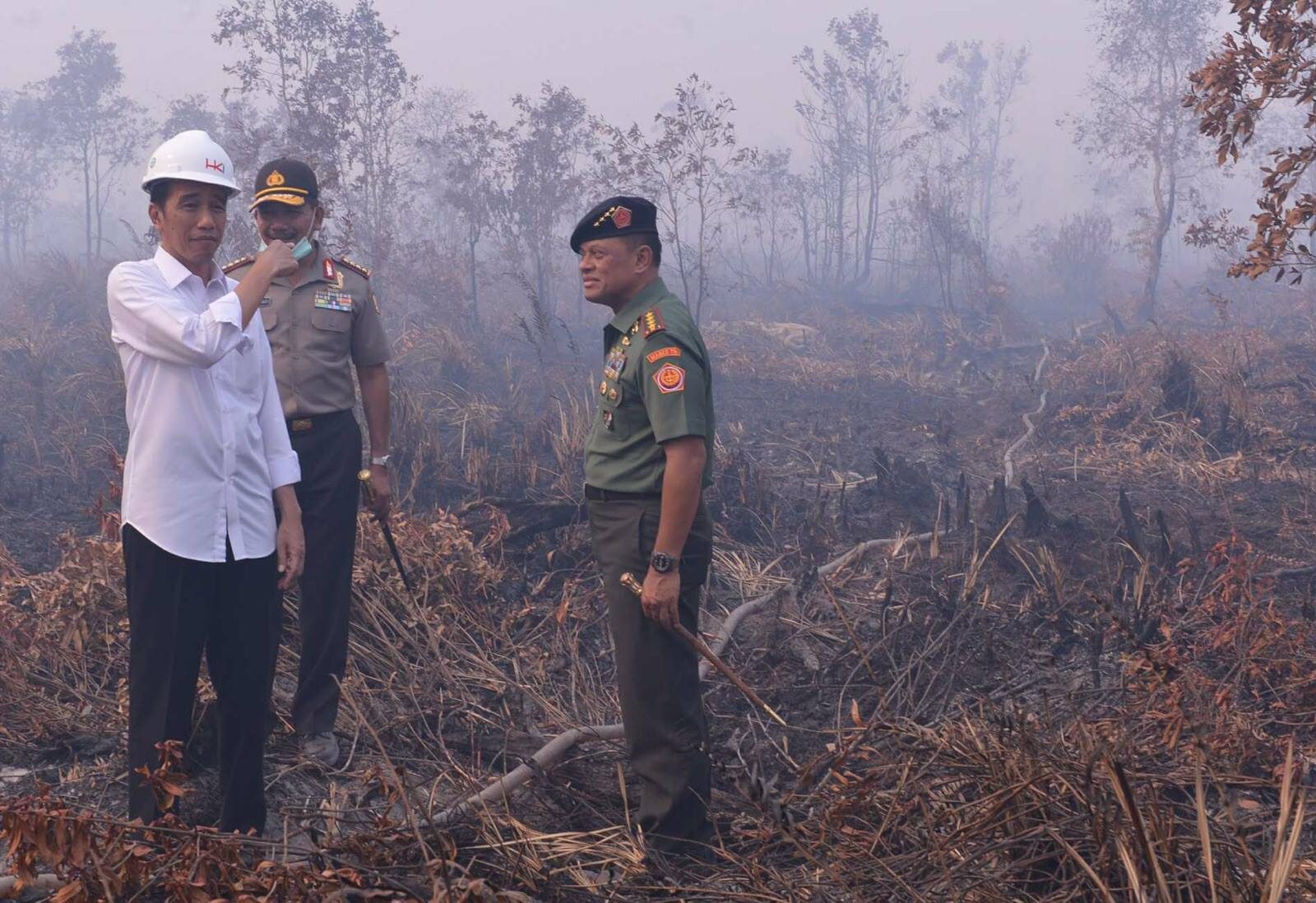SUMMARY
This is AI generated summarization, which may have errors. For context, always refer to the full article.

The decision by President Joko “Jokowi” Widodo to cut short an important trip to the United States to return to Indonesia early to take personal charge of attempts to quell wildfires and peatland hot spots could – if you’re an optimist – be the inflection point in the country’s unenviable direction in destroying its forest cover and blanketing the entire region in smoke.
A fleet of airplanes from as far away as the US, Australia and Russia are dive-bombing the flames with water and retardant, but the crisis has grown so great that the choking smoke could delay local elections slated for December 9 in Indonesia.
It has also generated such a huge public health crisis that Jokowi aborted a groundbreaking trip to the US where he met President Barack Obama. (READ: Jokowi cuts US trip short to attend to haze crisis)
One of the topics discussed with the US chief executive was Indonesia’s problems with greenhouse gas production. (READ: Death toll from haze nearly doubles)
The fires this year, spurred partly by the El Nino phenomenon, has brought drought to Southeast Asia’s forests and are said to be the worst since at least 2006 when half a million hectares were cleared by burning.
For the first time, the fires spurred a regional consensus that something has to be done to stop the forest degradation and clean the region’s skies during the burning season. (READ: ‘No escape’: The desperate state of Indonesians living in haze)
Opportunity for reform
Large areas of forest in Kalimantan and Sumatra have been cleared by multinational oil palm and pulp and paper companies, to be replaced by plantations, the timber from the clearings shipped to China and Japan.
Although such agribusiness interests as Asia Pulp and Paper have caught most of the blame, much of the fires are started by small holders as well. Fires often destroy carbon sinks and peat bogs which are some of the world’s most critical repositories of carbon.
With hundreds of thousands of hectares on fire, this year Indonesia has contributed more greenhouse emissions to the global atmosphere than the entire US economy, according to the World Resources Institute. Data from the Global Fire Emissions Database showed that Indonesia’s carbon emissions have surpassed 1.4 billion tonnes of CO2-equivalent.
“More conspicuously, the fires have triggered a spasm of air pollution that has mushroomed into a domestic health emergency and regional political crisis for Indonesia, with Indonesian companies seeing their products pulled from store shelves and facing multimillion dollar fines from the Singaporean government,” said Rhett Butler, the founder of the Mongabay environmental NGO.
“That reaction comes on top of a steep dive in the Indonesian rupiah and a commodity market rout that has hit some of the country’s biggest exports, including oil, coal, palm oil, and rubber. These are dark days – literally and figuratively – for Indonesia.” (READ: Can’t wait for gov’t: Desperate resident fight forest fires on their own)
Indonesia’s public health crisis and ecological calamity “presents Jokowi with an opportunity to finally enact reforms in the forest and plantation sectors that his predecessor Susilo Bambang Yudhoyono failed to implement,” Butler added.
“Jokowi has both the domestic support from citizens and business leaders to meaningfully adopt and implement policies that shift Indonesia away from practices that have wrecked the country’s forests and peatlands, heightened social conflict, eroded local food security, and made the country one of the world’s largest carbon polluters.” – Rappler.com
Read the rest of this article on Asia Sentinel, a platform for news, analysis and opinion on national and regional issues in Asia.
Add a comment
How does this make you feel?
There are no comments yet. Add your comment to start the conversation.